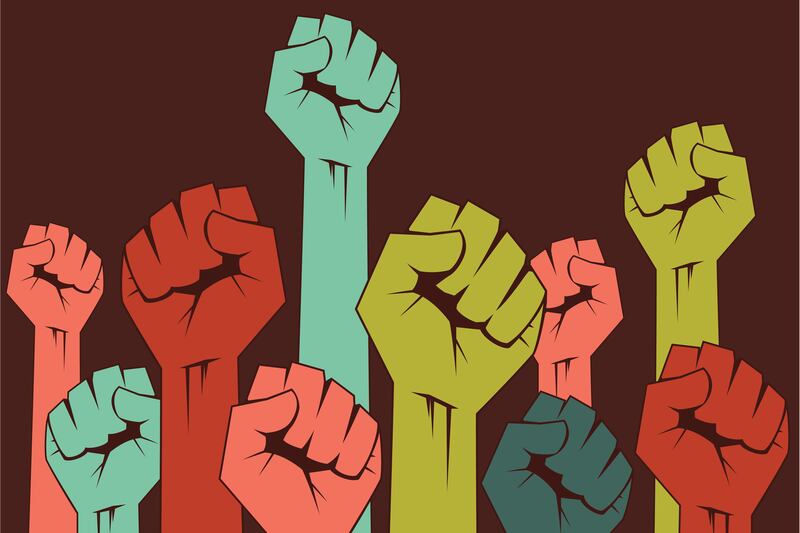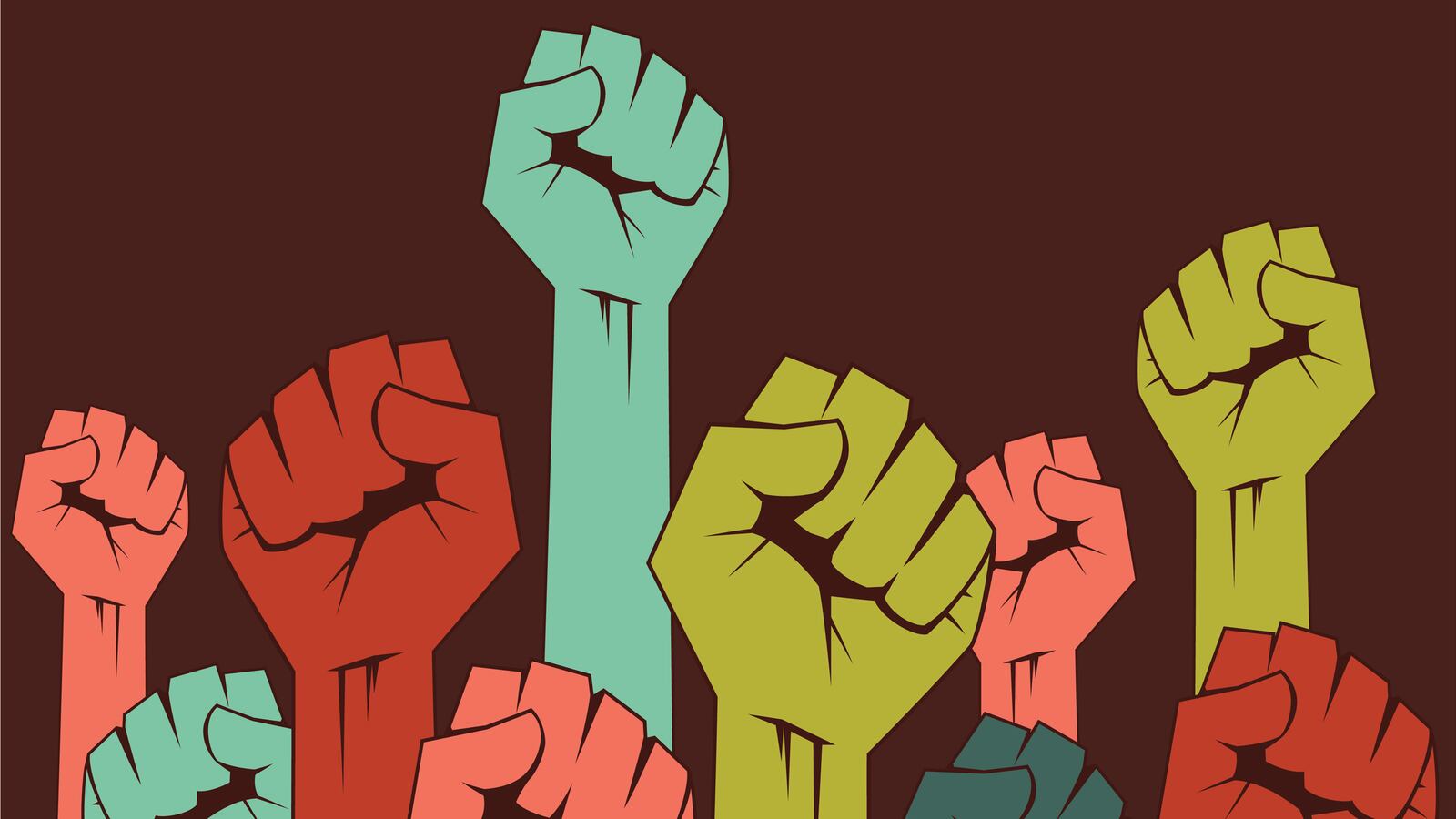When we hear the phrase “civil rights movement,” our minds automatically click into history mode and visualize those grainy and often searing black-and-white images from Birmingham and Selma. But that same energy and spirit—and urgency—are alive and well today, and as necessary as ever.

On Friday, July 11, 2014, a group of a hundred or so young and racially diverse leaders from across the United States sat in the Civil Rights Room of the Nashville Public Library and watched scenes from the legendary documentary film Eyes on the Prize. They focused on the portions that had local interest: Student leaders in Nashville in 1960 had been staging sit-ins to protest segregated lunch counters while tensions in the city steadily rose. On the morning of April 19, 1960, the home of a prominent black lawyer was bombed.
That afternoon, in response, the students led a silent march through the streets of Nashville to the steps of City Hall. Mayor Ben West met them there, and repeated his usual explanation of how the city was powerless to change segregation. Diane Nash, a student who was the elected leader of the Nashville movement, simply asked, “Mayor, do you recommend that the lunch counters be desegregated?”
West replied yes. A few weeks later, Nashville became the first major Southern city in which blacks and whites could sit together and eat lunch.
But what struck the young people as they sat watching the film this past Friday, many the same age as Nash and her compatriots had been, was how the students who marched silently through the streets of Nashville were yelled at, spat on, and even beaten, simply for standing up for their equal humanity and rights.
The next morning, as this group of young leaders marched silently down the streets of Nashville in the shadow of the civil rights marchers before them, a group of white women drove by and from the back of a truck hollered the N-word at the group. It was a searing reminder of how much things can change and yet stay the same. And it’s a microcosm of why we still need to fight actively for justice and fairness against conservative opposition.
After all, these young activists—part of a group called Freedom Side—were in Nashville to organize and advocate around issues that had long seemed settled in the wake of the civil rights movement. A “collective of young leaders of color, standing together at the front lines of racial justice,” Freedom Side is focused on a core set of issues the group sees as integral to an equal society and yet under imminent political threat. These include the idea of free, fully-funded public education for all, a criminal justice system that is actually just rather than a biased and rigged school-to-prison pipeline for communities of color, and a democracy that is fair and protects the right to vote for all.
It’s ironic, to say the least, that Freedom Side is coming together on the occasion of the 50th anniversary of the Freedom Summer voter registration drive, as the voting rights of black Americans and others are once again under siege. According to the Brennan Center, since 2011, 25 laws and two executive actions have passed in 19 states to restrict voting access in America. At least 180 restrictive bills have been introduced in 41 states and some are still pending.
Since 2013, when conservatives on the United States Supreme Court invalidated key sections of the 1965 Voting Rights Act, Republican efforts to restrict voting rights have surged. Laws that civil rights leaders fought so hard to establish are being brushed aside. And so movements are yet again rising to respond.
In North Carolina, thousands of protesters gather each week for “Moral Mondays” to stand together against one of the most restrictive anti-voting laws in the nation. North Carolina has ended same-day voter registration, yet while African Americans are only 23 percent of the electorate, they make up 41 percent of those who rely on same-day registration.
The state also eliminated early voting even though 70 percent of African Americans who voted in the 2012 election used early voting. “Moral Mondays” protesters are standing up, every week, for the simple idea that we should be encouraging people to participate in our democracy, not putting up unjust obstacles. And the movement has expanded to tackle other issues as well, as Republicans in the state have drastically restricted access to abortion and refused to expand Medicaid coverage under Obamacare.
And in case you weren’t clear why these rollbacks of rights are happening, especially around voting, Republicans are happy to make it clear for you. In Pennsylvania and Florida, GOP legislators have flat-out confessed that they hope to help Republicans win more elections by disenfranchising black, Latino, and young voters. But those standing for voting rights and basic fairness and opportunity in America aren’t as motivated by partisanship, frankly. Their main loyalty is to the values and ideals of our nation. Values we have always aspired to, but often struggled in living up to.
Five of the Freedom Side student marchers were arrested on Saturday as they protested at the National Governors Association meeting and tried to raise these important issues to state leaders. Hours later, a judge threw out all the charges. As was the case with the mayor of Nashville so many years ago, sometimes even the status quo can’t stand its own hypocrisy. James Hayes, a leader with the Ohio Student Association and one of those arrested, said, “Fifty years ago young people converged in Mississippi to challenge white supremacy and force the nation to answer a simple, yet radical question: ‘Whose life matters in America?’”
Once upon a time in America, bold social movements pressed us all to reconsider our answer. We were asked to expand our nation’s laws and policies and our very sense of self to fully include black Americans and immigrants and women and young people and gay folks as equal members of our nation, with all the rights and dignity that full membership should entail.
But Republicans have begun to unravel that question again and roll back equality, from women’s rights to voting rights to school funding and more. And though as on that day in 1960, the students marching through Nashville this weekend were silent, their convictions are loud. And these growing movements will be heard and echoed by strong majority of Americans, who will increasingly be silent no more.






